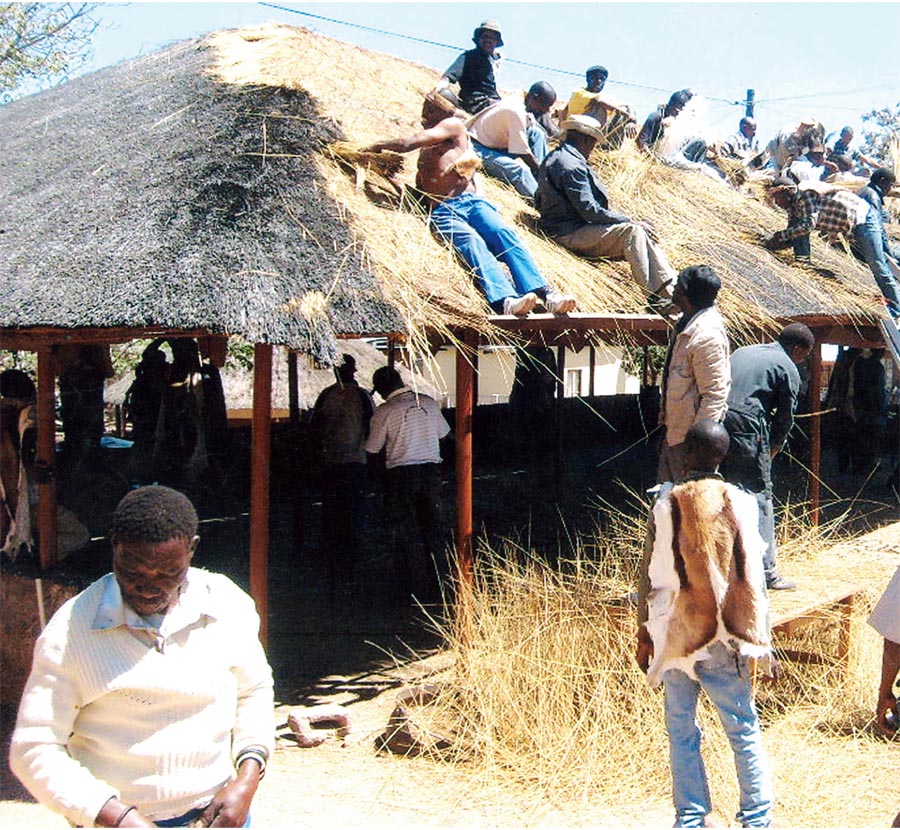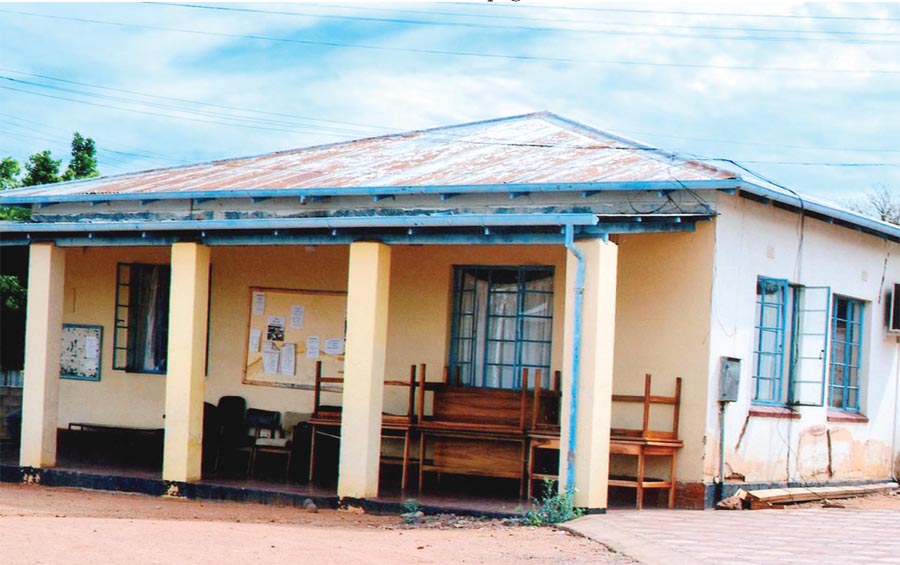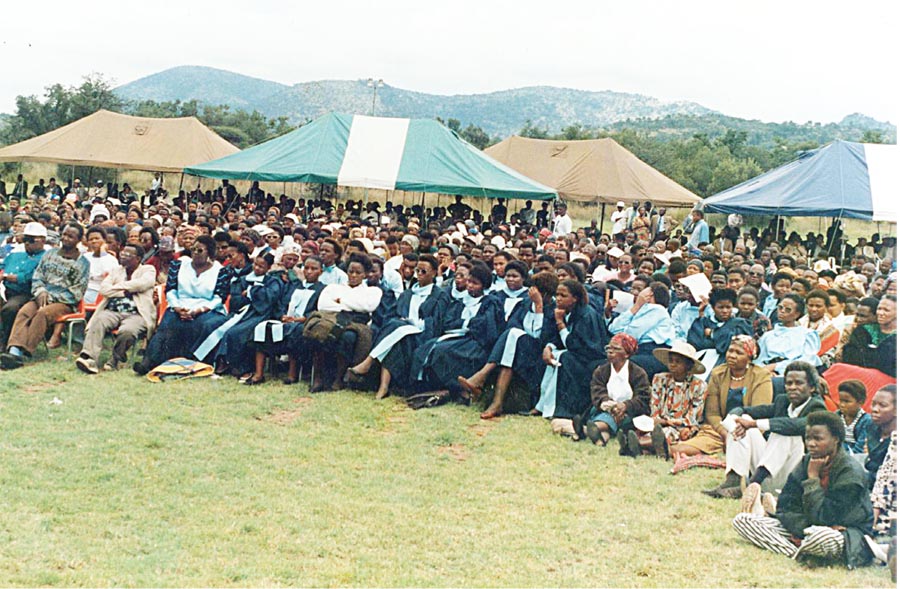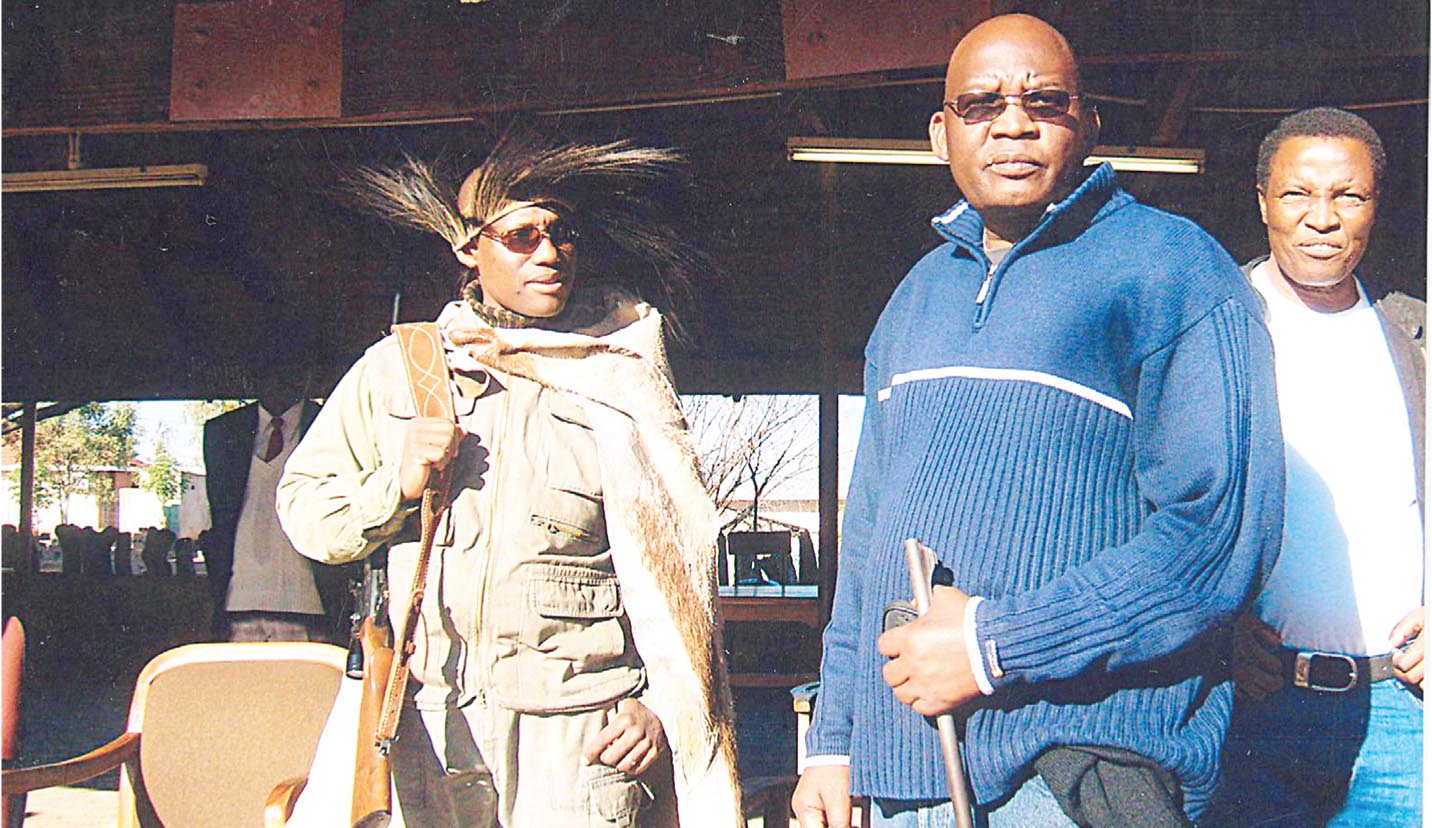From a MoKgatla journoÔÇÖs desk...
Source : Freelancer
Author : Kwapeng Modikwe
Location : Mochudi
Event : Analysis
Stick wielding men, trunks draped in kudu or goat skin capes known as mekobolo; women adorned in traditional leteisi and small matching blanket, otherwise known as ditsajana, carefully thrown over their shoulders and buttoned with a giant brooch – the way you would a poncho. It is all a beautiful spectacle, what with the beautifully cross rhythm of dikoma and the theatrical dance of the men as they brandish their merokolo in the air. These are Bakgatla-ba-ga Kgafela, and this is the type of scene that you would expect whenever the tribe descends upon Gaborone or Lobatse in support of their monarch, kgosikgolo Kgafela II. The kgosi has been making a number of appearances in the courts for cases involving illegal floggings of people in Kgatleng. When they come to court in support of the Kgosi the Bakgatla appear to be one united people each of whom is ready to bite the bullet for Kgafela. That is only as far as it looks.
Back in Mochudi and its satellite towns the mood is dreary, even somber. Even the buildings somehow narrate the sad story of Bakgatla. A simple walk through the main Kgotla at kgosing gives you an unhappy storyline.
The kgotla has become a shadow of what it used to be. Its generation’s old lesaka (cattle kraal and leobo (shelter) have been demolished. These historical structures formed part of the Kgotla’s glory from time immemorial. However, they were brought down, put down really, at Kgafela’s instruction. He wanted better and stronger structures in their place. However, to many people the kraal and leobo were not just structures. They were living organisms. The kraal for instance guarded the interred remains of dikgosi Linchwe I and Molefhi who died a long time ago. Now the old chiefs are angry. They should be, after all the kraal guarded and protected them from the harsh elements, which have lately become harsher.
However, it does not look like the structures will be built any time soon. The leobo for example was to be built with donations from the public but work has not started because there is no money. Although some funds were raised, how they have been used is anyone’s guess. An audited report cannot be produced because there is simply no money to pay the auditors. So serious is the issue that Kgosi Bana Sekai recently appealed to Bakgatla with auditing skills to volunteer their service.
Parallel to failure by the tribe to build its own structures, is the absence of any real development in Kgatleng since Kgafela was installed as kgosikgolo of Bakgatla in 2008. Already government offices show signs of age and overuse, and they are becoming quite an eyesore. There are those who claim that the kgosikgolo stopped some projects such as the building of new tribal offices, which government planned on doing from as far back as 2003.
However, District Officer (Development) in Mochudi, Mogomotsi has a different view. The project could not take place because of the effects of the global recession which ate away at government revenue. Indeed, government plans to build the new offices and all that is in the District Development Plan 6 (DDP6), he adds.
Services at the main kgotla are almost none existent, and people who go there looking for help often come back awfully disappointed. Take Thontshi Magetse for instance. He sold cattle to someone but when he went to the kgotla to change ownership to the customer no one would help him.
The traditional leader dealing with the issue reasoned that he would be guilty of insubordination if he helped her. He had been instructed by his superiors not to provide service to cattle owners. It was with only much persuasion and pleading that Thontshi finally got help.
“Please you must understand the situation that we find ourselves in; it is not that we like it,” another tribal leader who was present throughout Thontshi’s supplication said to him soon thereafter. The moratorium has ostensibly been issued by someone high up the rungs of Bakgatla leadership ladder, who believes such behavior will change government’s approach to Bakgatla matters. However, many Bakgatla are not happy about this turn of events.
So polarized is the tribe over Kgafela that people are careful of what they say when they speak in public. There are those who simply will hear or see no evil about their kgosikgolo. This selective approach or exposure to issues is better captured in a story about some Bakgatla men who went drinking at a bar. They were still drinking when Botswana Television news started. As soon as the news anchor mentioned that a warrant of arrest had been issued against Kgafela, one of them walked out in anger. Sadly, those who hold a view contrary to Kgafela’s supporters are labeled enemies of the kgosi and informants of the Directorate of Intelligence Services (DIS).
The atmosphere is reminiscent of the ugly 1995 Mochudi riots when the residents were not free to express themselves in public. At the time, those who were anti-rioting were labeled the killers of Segametsi Mogomotsi and risked aggression. Segametsi was a teenage girl who at the time of her alleged ritual murder was a student at Radikolo Community Juniuor Secondary School.
As then there are two camps in the Bakgatla dichotomy. There is on the one camp the men and women in traditional garb. These are members of the mephato or regiments. Many of them are Madibelankwe who Kgafela graduated in 2009. The mephato are a proud lot and it appears they are accorded some respect ahead of other Bakgatla. For example in meetings addressed by the tribal leadership, they often occupy the more prestigious space, which is at the front and closer to the tribal leadership. Other members of the tribe have made their discontent about this “discriminatory” arrangement known. Why, during Kgosi Linchwe’s reign, mephato only wore their attire on special occasions such as when foreign dignitaries visited.
Bakgatla’s biggest problem though is that of leadership. It is the absence of the tribal leadership that has left Bakgatla a vulnerable lot. The traditional leadership has been left tottering following Kgafela’s claimed relocation to South Africa. The interdictions and convictions of some traditional leaders over the destruction of a Mascom tower at Phuthadikobo hill simply made things a whole lot difficult.
Notwithstanding, make no mistake Kgafela may have suffered a few setbacks but he remains in more ways than one, a very powerful figure among his people.
So great is their loyalty to the kgosikgolo that one leading personality even offered during a kgotla meeting to take up the blame when he heard that Kgafela was to appear in court for allegedly flogging people.
“Kgosi ga a kake a tsena mo lebokosong ke le teng,” meaning, instead of Kgafela, he would be the one in the dock.
And you would want to be careful how you express your opposition to Kgafela’s ideas or learn the hard way, like former Speaker of the National Assembly and one of the intellectuals of Mochudi, Ray Molomo. For merely expressing a different view, Molomo faced a hostile reception from a section of the meeting. Like many open minded people, Molomo would rather issues were dealt with differently and that appropriate language be used in reference to national leaders.
Now Kgafela is said to have relocated to South Africa. The relocation presents a serious head ache for his deputies as they appear not to know what would follow next. But then there are those who see his departure as good riddance. After all this is the man who came up with a strict regimen for life in Kgatleng, which included setting times for beer drinking and banning home-made brews. Regarded as the headquarters of Bakgatla in Moruleng and Botswana from time immemorial, it remains to be seen what status Mochudi will now assume. Will it be a headquarters ruled by a regent?
There is no doubt though that of all past Bakgatla leaders, none came close to Kgafela and his progressive ideas meant to uplift the living standards of his people in Botswana and South Africa.
Kgafela registered seven companies under Bakgatla-Ba-Kgafela Royal Trust Corporation Limited. One of them is a corporation whose objective is to “secure meaningful” community participation in mining activities carried out within the Kgatleng District.
He also wanted to establish a game park on the eastern side of Mochudi. Unfortunately, the plan was thwarted by farming communities in the area who would not make way for the park as they were not guaranteed compensation and land for resettlement if they agreed to move. If indeed the kgosikgolo has relocated to his ancestors’ home in Moruleng will Bakgatla be able to find a local representative of the kgosikgolo who has the same zeal to drive Kgabo’s ambitious projects? ENDS
Teaser:
Parallel to failure by the tribe to build its own structures, is the absence of any real development in Kgatleng since Kgafela was installed as kgosikgolo of Bakgatla in 2008. Already government offices show signs of age and overuse, and they are becoming quite an eyesore.
















